| |
|
|
|
|
| |
| |
 |
Claudia Benitez-Nelson, Professor, University of South Carolina, United States
|
Dr. Claudia Benitez-Nelson is an Associate Dean in the College of Arts & Sciences and Carolina Distinguished Professor and Endowed Chair in Marine Studies at the University of South Carolina. Her research focuses on the biogeochemical cycling of carbon and phosphorus and how these elements are influenced by both natural and anthropogenic processes. She is a diverse scientist, with expertise ranging from radiochemistry to harmful algal bloom toxins and is highly regarded for her cross-disciplinary research. Over the past two decades, Dr. Benitez-Nelson has authored or co-authored more than 120 articles. She has been continuously supported by substantial, multi-year research and education grants from the National Science Foundation and the National Aeronautics and Space Administration, among others. Her many research honors include the Early Career Award in Oceanography from AGU and Fulbright and Marie Curie Fellowships. In 2015 she was named an AAAS Fellow, and in 2017, was named an ASLO Sustaining Fellow. Dr. Benitez-Nelson is also highly regarded as a teacher and mentor, having received the National Faculty of the Year Award from the National Society of Collegiate Scholars and the University of South Carolina’s Distinguished Professor of the Year Award, SEC Faculty Achievement Award, and Outstanding Faculty Advisor of the Year. She also received the Sulzman Award for Excellence in Education and Mentoring from the Biogeosciences Section of AGU. |
|
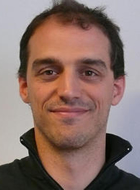 |
Laurent Bopp, CNRS Senior Scientist, Institut Pierre-Simon Laplace, CNRS, France |
Dr. Laurent Bopp is a CNRS Senior Scientist at the Institut Pierre-Simon Laplace, and Adjunct Professor at the Ecole Normale Supérieure, in Paris. He is currently the head of the Geosciences Department at the Ecole Normale Supérieure. He received his Ph.D. from the University of Paris in 2001. His research focuses on the links between climate, climate change and marine biogeochemistry. In particular, he has been among the first to use global climate models to explore how anthropogenic climate change might affect marine productivity & ecosystems as well as ocean air-sea fluxes. He has been involved in the last IPCC assessment report as a lead author for the chapter on Biogeochemical Cycles. He has received the Medaille de la Societe d'Oceanographie de France in 2011, and the AGU Ocean Section Voyager Award in 2016. |
|
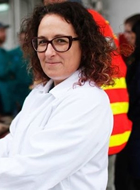 |
Karen Evans, Senior Research Scientist, CSIRO Oceans and Atmosphere, Tasmania, Australia
|
Dr. Karen Evans is a Team Leader and principal research scientist with CSIRO Oceans and Atmosphere based in Hobart, Tasmania. She is involved in research focused on improving scientific understanding and developing options for sustainable marine resource management, particularly in relation to national and international fisheries. She also leads research aimed at improving reporting of biodiversity assessments at national, regional and global scales and providing baseline information for assessing the impacts of oil and gas activities on the marine environment. Karen’s expertise and international reputation has seen her contribute to UN regular processes such as the Integrated Global Assessment of the Marine Environment, including Socio-economic Aspects and the World Meteorological Organisation Joint CAgM/JCOMM Task Team on Weather, Climate and Fisheries. She is co-chair of the Integrated Marine Biosphere Research project’s regional programme ‘Climate Impacts on Top Predators’ (CLIOTOP), an associate editor of the Proceeding of the Royal Society B: Biological Sciences and a member of the Executive Planning Group for the UN Decade of Ocean Science for Sustainable Development. |
|
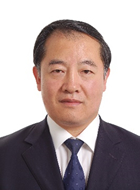 |
Guibin Jiang, Professor, State Key Laboratory of Environmental Chemistry and Ecotoxicology, Research Center for Eco-Environmental Sciences, Chinese Academy of Sciences, China
|
Dr. Jiang Guibin is a professor of environmental chemistry and toxicology at Research Center for Eco-Environmental Sciences (RCEES), Chinese Academy of Sciences (CAS). He is the founding director of the State Key Laboratory of Environmental Chemistry and Ecotoxicology, president of China Association for Instrumental Analysis (CAIA), and associate editor of Environmental Science and Technology (ES&T). He is also an academician of the Chinese Academy of Sciences, fellow of the Third World Academy of Sciences (TWAS), and fellow of the Royal Society of Chemistry (FRSC).
Prof. Jiang’s research is mainly focused on analytical development, environmental fate, toxicology and health effects of persistent organic pollutants (POPs), organometallic compounds and nano-materials. As the pioneer of the fields of emerging contaminants, his research conducted the academic direction of discovering new pollutants in real environment and acted as the irreplaceable role for the implementation of the Stockholm Convention on Persistent Organic Pollutants and the Minamata Convention on Mercury in China.
Prof. Jiang has contributed more than 700 papers in peer-reviewed international scientific journals and published 18 monographs. He was honored with the prestigious Chang Jiang Scholars Achievement Award in 2007, National Award of Natural Science of State Council of China in 2003, 2011 and 2018, Agilent Thought Leader Award in 2013, and Outstanding Science and Technology Achievement Prize of Chinese Academy of Sciences in 2013. |
|
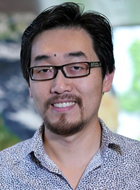 |
Zunli Lu, Associate Professor, Syracuse University, United States |
Dr. Zunli Lu received his Ph.D. from University of Rochester and worked as a post-doctoral researcher at University of Oxford. He is currently associate professor at Syracuse University. His core interests and experiences center around how things (e.g. water, methane, carbon, other elements) move at regional to global scales; how these movements are intertwined with changes in tectonics, atmosphere, ocean, and climate; and how the biosphere evolved with these changes through Earth history. His recent efforts focus on developing an oceanographic proxy to track dissolved oxygen at a range of time scales. |
|
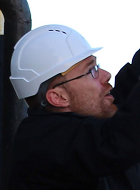 |
Alessandro Tagliabue, Professor, University of Liverpool, United Kingdom |
Dr. Alessandro Tagliabue is a Professor at the University of Liverpool and an ocean biogeochemist, interested in how the cycling of resources in the sea affects biological activity and vice-versa. He is particularly interested in trace micronutrients and how they interact together to shape primary production, ecosystem structure and the global carbon cycle. Dr. Tagliabue's science links numerical models, at both global and idealised scales, with both fieldwork and synthesis of datasets. He is heavily involved in the international GEOTRACES programme, was a lead author on the IPCC Special Report on Oceans and Cryosphere in a Changing Climate, is UK Chair for SCOR and is a member of the governing council of the UK Challenger Society for Marine Science and sits on the Royal Society Global Environment Research Committee. |
| |
|
|
|
|
|
|